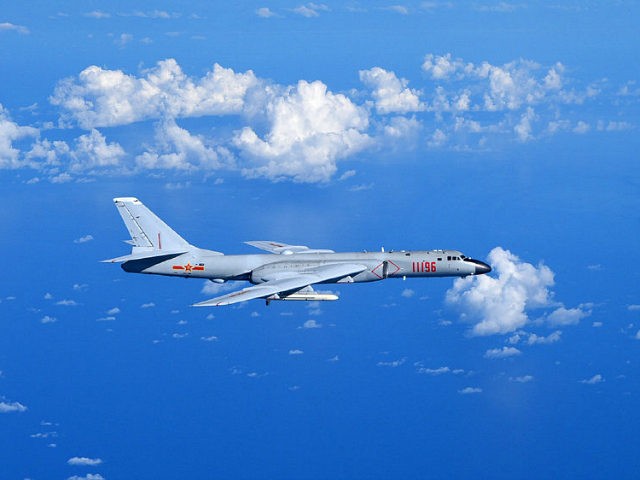“It is lawful, reasonable and fair, and happened as in the past according to plan,” the Chinese air force said in a statement late last week regarding military exercises over waters near Taiwan, alarming the Taiwanese government following heavy criticism from Beijing of Taipei’s embrace of American President-elect Donald Trump.
Citing reports of air missions over Taiwan as having “attracted public attention at home and abroad,” the air force clarified on its microblog that Beijing considers the military operations routine. “In the past two years of the Chinese air force’s holding drills far out at sea, we have dealt with and handled various forms of interference and obstruction, carrying out reconnaissance and early warning, patrol, attack, air refueling and other drills,” the statement, released on Thursday, read. The operations also occurred over waters near Japan. Like Taiwan’s president Tsai Ing-wen, Japanese Prime Minister Shinzo Abe has endeavored to begin his relationship with Trump on a positive note.
“The drill and patrol missions in the East and South China seas are regular, legitimate and responsible military activities that reflect the Chinese air force’s mission and duties in the region,” the statement concluded.
The People’s Liberation Army had flown H-6K nuclear bombers over both the waters near Taiwan and Japan, according to the South China Morning Post. The outlet notes that such operations “have became [sic] more frequent since a telephone call between Taiwanese president Tsai Ing-wen and US president-elect Donald Trump on December 2.” This week, China conducted live ammunition exercises on the aircraft carrier Liaoning, the first of its kind with this particular carrier.
China has followed up these official military statements with a more aggressive tone in its state-run propaganda outlets. The Global Times, for example, ran a column Monday suggesting that pro-Beijing forces in Taiwan are alarmed at the possibility that Trump and Tsai could cooperate to liberate the island from the Communist government on the mainland.
“The Taiwan regional government has lost its independence and become an agent of US and Japanese anti-China forces,” the article quotes an expert as saying, identified as Wang Zaixi of the Association for Relations Across the Taiwan Straits. The article also quotes a military official as stating, “Military conflicts would occur between the Chinese mainland and Taiwan by 2020. It is quite possible that the mainland will take the island in one stroke.”
The Global Times article also seems to vindicate the alarm in Taiwan. Rather than calling last week’s drills routine, the article cites a “military expert” who claims that the images posted by the air force on the Chinese social media network Sina Weibo are “the first time that mainland aircraft had been photographed with Taiwan landscapes, which has a psychological impact on the island.”
In a different article, the Global Times claims that any panic in Taiwan and confusing in the nascent Trump administration over the “One China” policy — the decades-long rule that America would ignore any anti-Communist separatist movements within China — lies directly at the feet of Taipei. “Pro-independence forces in Taiwan are taking advantage of the confusion caused by US President-elect Donald Trump,” the article proclaims, warning that Beijing was ready to impose economic sanctions on Taiwan if necessary.

COMMENTS
Please let us know if you're having issues with commenting.